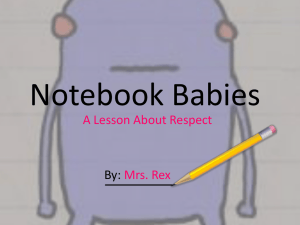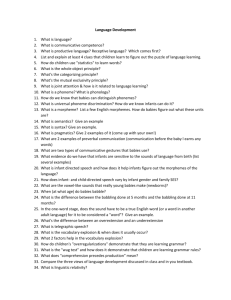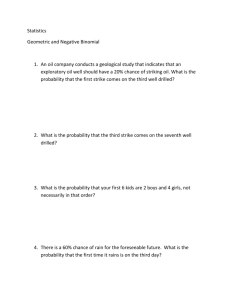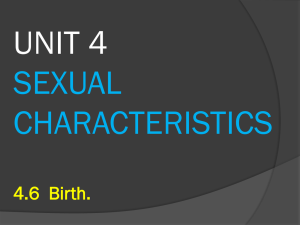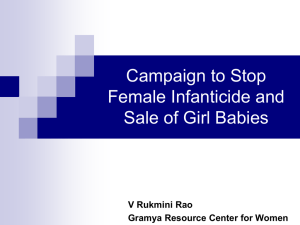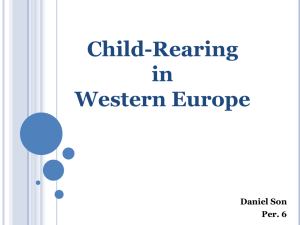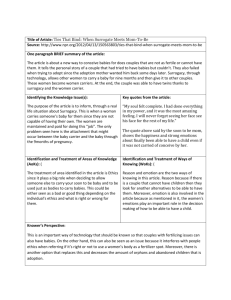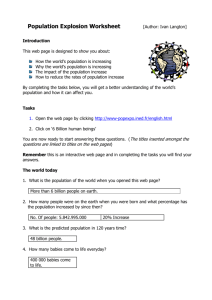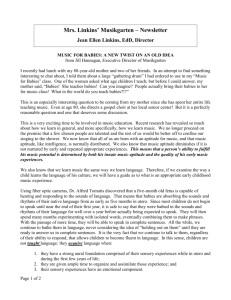Thinking about babies - Crewe & Nantwich U3A
advertisement
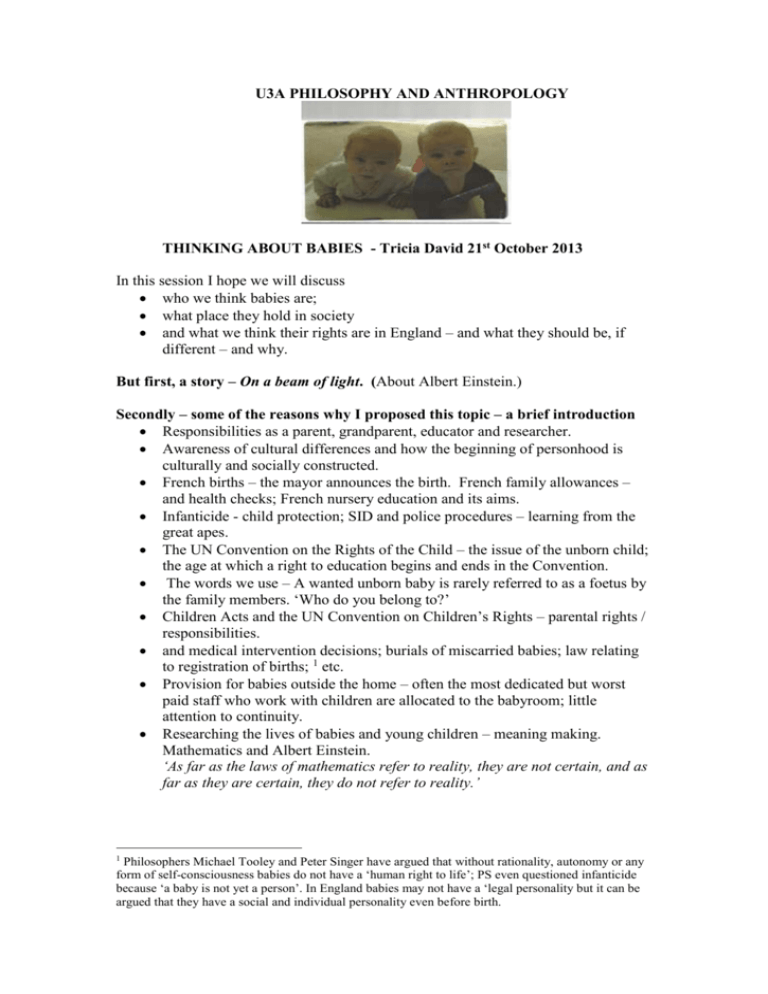
U3A PHILOSOPHY AND ANTHROPOLOGY THINKING ABOUT BABIES - Tricia David 21st October 2013 In this session I hope we will discuss who we think babies are; what place they hold in society and what we think their rights are in England – and what they should be, if different – and why. But first, a story – On a beam of light. (About Albert Einstein.) Secondly – some of the reasons why I proposed this topic – a brief introduction Responsibilities as a parent, grandparent, educator and researcher. Awareness of cultural differences and how the beginning of personhood is culturally and socially constructed. French births – the mayor announces the birth. French family allowances – and health checks; French nursery education and its aims. Infanticide - child protection; SID and police procedures – learning from the great apes. The UN Convention on the Rights of the Child – the issue of the unborn child; the age at which a right to education begins and ends in the Convention. The words we use – A wanted unborn baby is rarely referred to as a foetus by the family members. ‘Who do you belong to?’ Children Acts and the UN Convention on Children’s Rights – parental rights / responsibilities. and medical intervention decisions; burials of miscarried babies; law relating to registration of births; 1 etc. Provision for babies outside the home – often the most dedicated but worst paid staff who work with children are allocated to the babyroom; little attention to continuity. Researching the lives of babies and young children – meaning making. Mathematics and Albert Einstein. ‘As far as the laws of mathematics refer to reality, they are not certain, and as far as they are certain, they do not refer to reality.’ 1 Philosophers Michael Tooley and Peter Singer have argued that without rationality, autonomy or any form of self-consciousness babies do not have a ‘human right to life’; PS even questioned infanticide because ‘a baby is not yet a person’. In England babies may not have a ‘legal personality but it can be argued that they have a social and individual personality even before birth. QUESTIONS FOR GROUP DISCUSSION 1. What differences in babyhoods have group members experienced – over time or in different cultures? 2. Are babies people or possessions? What evidence is there for one or the other? At what age do we recognise babies / children as people? Do we do this through some sort of formal ceremony, celebration or official act? 3. What rights do babies in England have? Would you suggest any changes to these? 4. If you were asked to direct a film about the first year of life in England, what would you want to show? Why? PLENARY Reading matter which may be of interest:Berne, J (2013) On a beam of light. San Francisco: Chronicle Books Gopnik, A. (2009) The Philosophical Baby: what children’s minds tell us about truth, love and the meaning of life. New York: Farrar, Straus and Giroux Lancy, D.F. (2008) The Anthropology of Childhood: Cherubs, Chattel, Changelings. New York: Cambridge University Press. Mithen, S. (2005) The Singing Neanderthals. London: Weidenfeld & Nicolson. Reddy, V. (2010) How Infants Know Minds. Cambridge Mass: Harvard University Press


